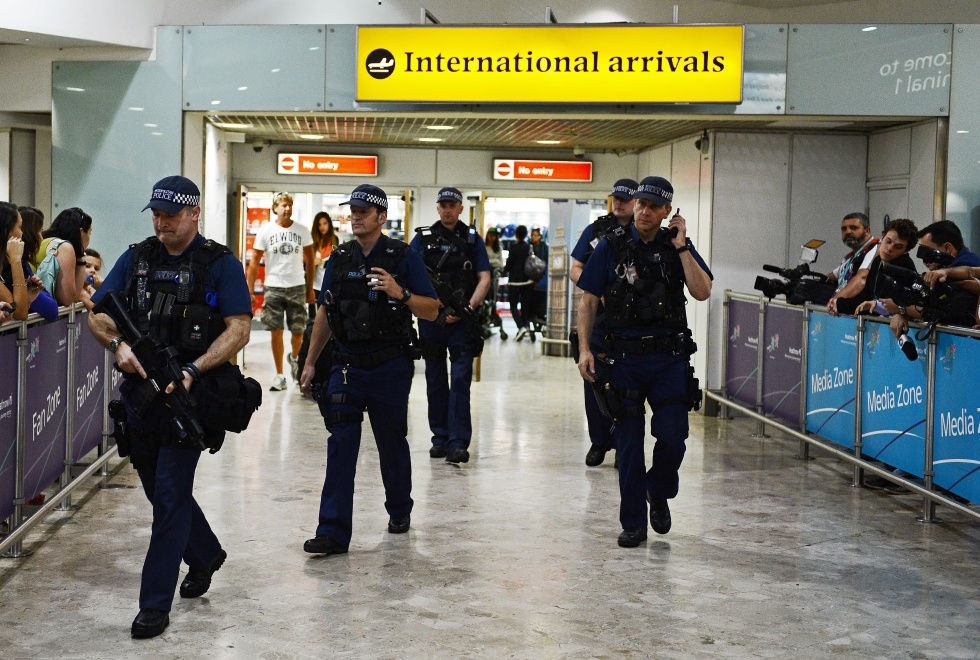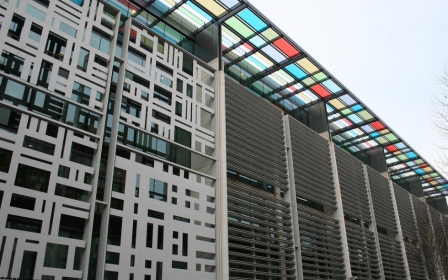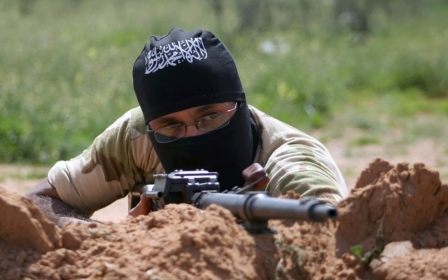Britons fighting in Syria fear returning home

Britain has taken a hard line on citizens returning from fighting in Syria and Iraq, but experts say more good might come from trying to help them.
An estimated 500 Britons have travelled abroad to become fighters, many with the Islamic State (IS) organisation, and about half have returned, according to government sources.
Britain is clear on its response.
"ISIL is a proscribed organisation so these people are guilty of a criminal offence," said Defence Secretary Michael Fallon.
"And if we can get them into the courts on their return that's what we will do."
The British authorities say they refer about 50 people a week to "de-radicalisation programmes", where their mental health can be assessed, but these are only open to those who have not yet left the country.
But many experts argue that the programmes should be accessible to returning fighters who might help prevent others following in their path.
Britain has stepped up prevention measures, including surveillance of flights in and out of Istanbul and by confiscating passports of suspects before they leave.
Prime Minister David Cameron and his interior minister have expressed their desire to withdraw British citizenship from Islamist fighters, although international human rights conventions prohibit making a person stateless.
Disillusioned with IS for fighting rebels instead of Assad
Of the 250 or so fighters who have returned, more than 60 have been arrested and 16 have so far been charged -- raising questions about what has happened to the others.
Contacted by AFP, Scotland Yard highlighted the "significant increase" in arrests linked to Syria and the prevention measures, but stayed silent on the returning fighters.
While some fighters are seen as a threat, others become disillusioned with the realities of fighting in Syria.
According to the British press, five Britons, three French, two Germans and two Belgians want to return home after complaining that they ended up fighting other rebel groups rather than Syrian President Bashar al-Assad's forces.
They are currently prisoners of the IS group.
In total, between 30 and 50 Britons want to return but fear they face jail, according to researchers at the International Centre for the Study of Radicalisation (ICSR) at King's College London, who have been contacted by one of the fighters speaking on the group's behalf.
Fighters 'feel trapped' as they face 30 years in jail
Hanif Qadir, the founder of the Active Change Foundation, an anti-extremism organisation, said British fighters must be given an opportunity to come home.
"At the moment there is nothing put in place by the British government to allow a corridor for them to return," he told AFP, adding that he was "in discussions" with the government about how to bring people back "in a controlled way".
Professor Peter Neumann of the ICSR has urged a compulsory programme for all returning fighters, a position also backed by opposition Labour leader Ed Miliband.
"The people we have been talking to... want to quit but feel trapped because all the government is talking about is locking them up for 30 years," he told the Daily Telegraph.
Qadir, who himself went to Afghanistan in 2002 to join a group affiliated with Al-Qaeda before becoming disillusioned, says returning fighters could be an asset.
"If we have a young man or a young girl that has gone to Syria and realised and saw the truth and the hypocrisy, I'm quite confident that they will be able to help us to prevent other men and women from going abroad," he said.
New MEE newsletter: Jerusalem Dispatch
Sign up to get the latest insights and analysis on Israel-Palestine, alongside Turkey Unpacked and other MEE newsletters
Middle East Eye delivers independent and unrivalled coverage and analysis of the Middle East, North Africa and beyond. To learn more about republishing this content and the associated fees, please fill out this form. More about MEE can be found here.




